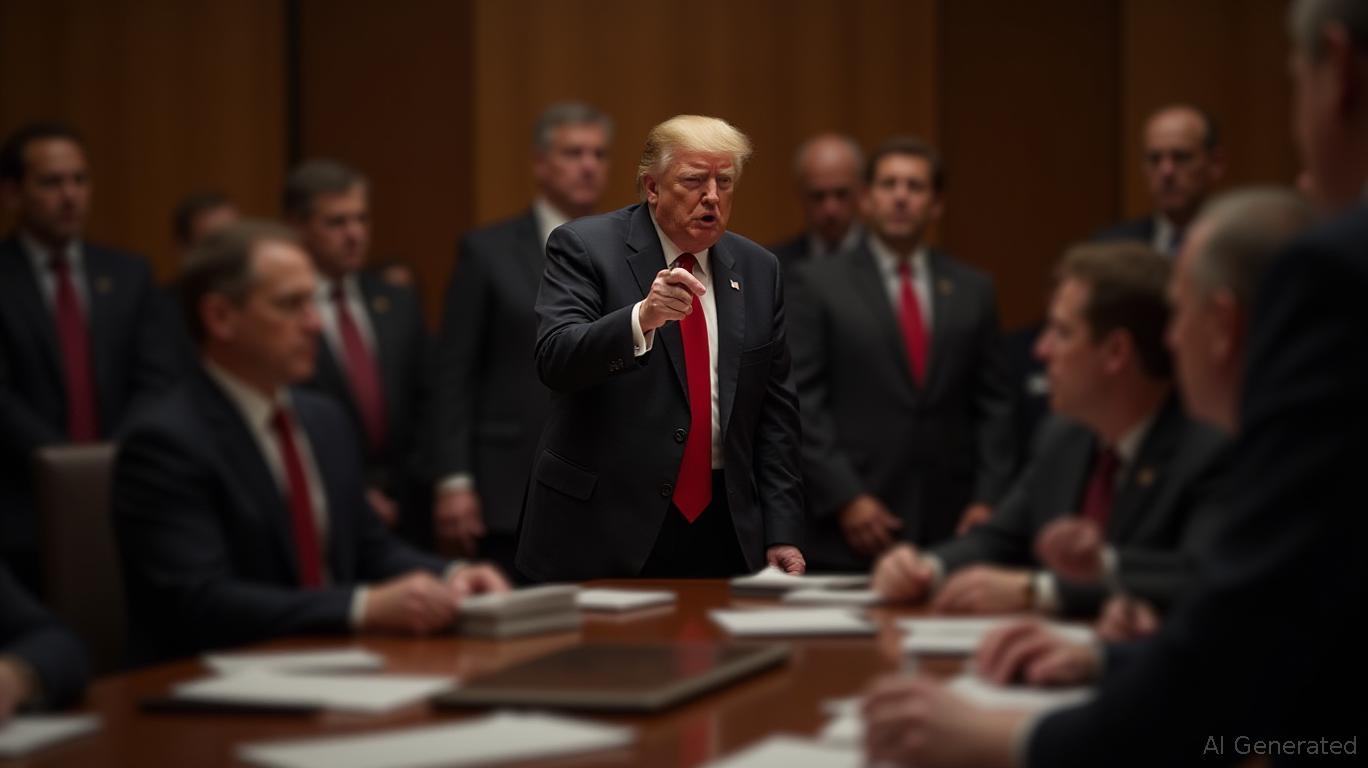Word on the StreetWednesday, Jul 16, 2025 3:08 pm ET
![]() 2min read
2min read
The U.S. House of Representatives experienced a notable delay concerning the advancement of cryptocurrency legislation after internal divisions among Republicans surfaced. Despite expectations to pass several cryptocurrency bills, including regulations on stablecoins and broader crypto market structure, a bloc of Republicans sided with Democrats to momentarily halt progress. This unexpected alignment stalled what was designated as “crypto week” in Congress. However, Donald Trump later intervened, asserting he had persuaded dissenting members to resume the legislative process.
The House had trouble advancing these bills due to disagreements over procedural matters. Some Republicans insisted on bundling all three bills into a single package, a move which would necessitate sending the consolidated bill back to the Senate, which had so far only considered one of the bills. This disagreement stemmed partly from concerns about the Senate's willingness to pass the separate pieces.
In a significant effort to expedite the process, Trump engaged directly with lawmakers, conducting meetings to secure the necessary votes for the procedural steps required to move the bills forward. Trump's optimism was reflected in his posts on social media, where he anticipated a vote in favor of the bills. The proposed legislation includes the GENIUS Act aimed at establishing governance for stablecoins, and broader market structure legislation projecting a considerable transformation of cryptocurrency regulatory frameworks in the U.S.
In addition to the stablecoin regulation, which passed the Senate, the proposed legislation would bar the Federal Reserve from introducing a digital U.S. currency, colloquially known as a central bank digital currency (CBDC). With an agreement reached, Trump and Republican leaders pushed for the individual passage of these bills, positing that the stablecoin bill could be promptly enacted by August.
Critics, including certain Democrats, suggested the bills might facilitate personal gains for Trump, notably via investments in World Liberty Financial, a crypto-focused venture affiliated with his family. Despite the circumstantial fortification by Trump’s participation in the cryptocurrency sector, the legislative development faced scrutiny over potential conflicts of interest, especially given a significant stake held in stablecoin operations.
The broader cryptocurrency industry regards these legislative movements as critical to establishing legitimacy and consumer trust. Industry leaders noted that while setbacks have been part of the legislative journey, efforts to enshrine broad regulatory frameworks usher in an era of clearer understanding, which could elevate the status and sustainability of digital assets.
Amid ongoing political maneuverings, the crypto bills' passage may substantially influence midterm election dynamics. Advocacy groups within the cryptocurrency sector are poised to financially bolster pro-crypto electoral candidates with significant PAC funding designed to galvanize voter support for legislation promoting favorable crypto industry practices.
Subsequent developments saw House Republicans realign under Trump's directive, managing to pass a procedural motion crucial for advancing the crypto bill package, despite initial intra-party opposition. This legislative progress underscored the fluctuating nature of institutional support within the GOP on crypto-related issues and illustrated the complex trajectory such financial reforms navigate within political echelons.
Once concretized, these measures, particularly those pertaining to market structure and stablecoins, could significantly influence future industry operations, potentially shifting the landscape of digital currency adoption. The impact of regulatory milestones reached, along with legislators’ attempts to navigate the nuanced debates surrounding digital currencies, may yet shape the institutional frameworks governing cryptocurrencies in the U.S.
Critics caution that these bills might embolden unethical activities, encouraging a narrow sectoral focus at the expense of broader financial system integrity, citing Trump’s ventures as illustrations. However, notwithstanding these assertions, the passage marks a pivotal movement towards reinforcing U.S. dominance in crypto spheres, underpinning Trump’s administration’s emphasis on maintaining an edge against global competitors like Europe and China.
While definitive progress remains contingent on further legislative actions and executive approvals, the plausibility of these bills becoming law exemplifies the intertwining of policy and economic aspirations in molding the future trajectory of digital currency markets.









 English (US) ·
English (US) ·